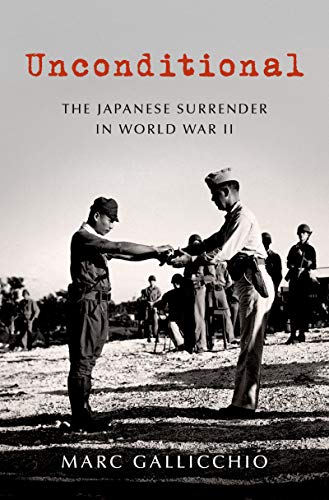|
[ FreeCourseWeb.com ] Unconditional: The Japanese Surrender in World War II
Download More Latest Stuff Visit -->> https://FreeCourseWeb.com

2020 | ISBN: 019009110X | English | 288 pages | PDF | 6 MB
A new look at the drama that lay behind the end of the war in the Pacific
Signed on September 2, 1945 aboard the American battleship USS Missouri in Tokyo Bay by Japanese and Allied leaders, the instrument of surrender that formally ended the war in the Pacific brought to a close one of the most cataclysmic engagements in history. Behind it lay a debate that had been raging for some weeks prior among American military and political leaders. The surrender fulfilled the commitment that Franklin Roosevelt had made in 1943 at the Casablanca conference that it be "unconditional." Though readily accepted as policy at the time, after Roosevelt's death in April 1945 support for unconditional surrender wavered, particularly among Republicans in Congress, when the bloody campaigns on Iwo Jima and Okinawa made clear the cost of military victory against Japan. Germany's unconditional surrender in May 1945 had been one thing; the war in the pacific was another. Many conservatives favored a negotiated surrender.
Though this was the last time American forces would impose surrender unconditionally, questions surrounding it continued through the 1950s and 1960s--with the Korean and Vietnam Wars--when liberal and conservative views reversed, including over the definition of "peace with honor." The subject was revived during the ceremonies surrounding the 50th anniversary in 1995, and the Gulf and Iraq Wars, when the subjects of exit strategies and "accomplished missions" were debated. Marc Gallicchio reveals how and why the surrender in Tokyo Bay unfolded as it did and the principle figures behind it, including George C. Marshall and Douglas MacArthur. The latter would effectively become the leader of Japan and his tenure, and indeed the very nature of the American occupation, was shaped by the nature of the surrender. Most importantly, Gallicchio reveals how the policy of unconditional surrender has shaped our memory and our understanding of World War II.
Use Winrar to Extract. And use a shorter path when extracting, such as C: drive
ALSO ANOTHER TIP: You Can Easily Navigate Using Winrar and Rename the Too Long File/ Folder Name if Needed While You Cannot in Default Windows Explorer. You are Welcome ! :)
Download More Latest Stuff Visit -->> https://FreeCourseWeb.com
Get Latest Apps Tips and Tricks -->> https://AppWikia.com
We upload these learning materials for the people from all over the world, who have the talent and motivation to sharpen their skills/ knowledge but do not have the financial support to afford the materials. If you like this content and if you are truly in a position that you can actually buy the materials, then Please, we repeat, Please, Support Authors. They Deserve it! Because always remember, without "Them", you and we won't be here having this conversation. Think about it! Peace...


|
|
udp://opentor.org:2710/announce udp://p4p.arenabg.com:1337/announce udp://tracker.torrent.eu.org:451/announce udp://tracker.cyberia.is:6969/announce udp://9.rarbg.to:2710/announc udp://explodie.org:6969/announce udp://tracker.moeking.me:6969/announce udp://tracker.opentrackr.org:1337/announce udp://tracker.tiny-vps.com:6969/announce udp://ipv4.tracker.harry.lu:80/announce udp://tracker.coppersurfer.tk:6969/announce udp://tracker.leechers-paradise.org:6969/announce udp://open.stealth.si:80/announce udp://tracker.pirateparty.gr:6969/announce udp://inferno.demonoid.is:3391/announce |

